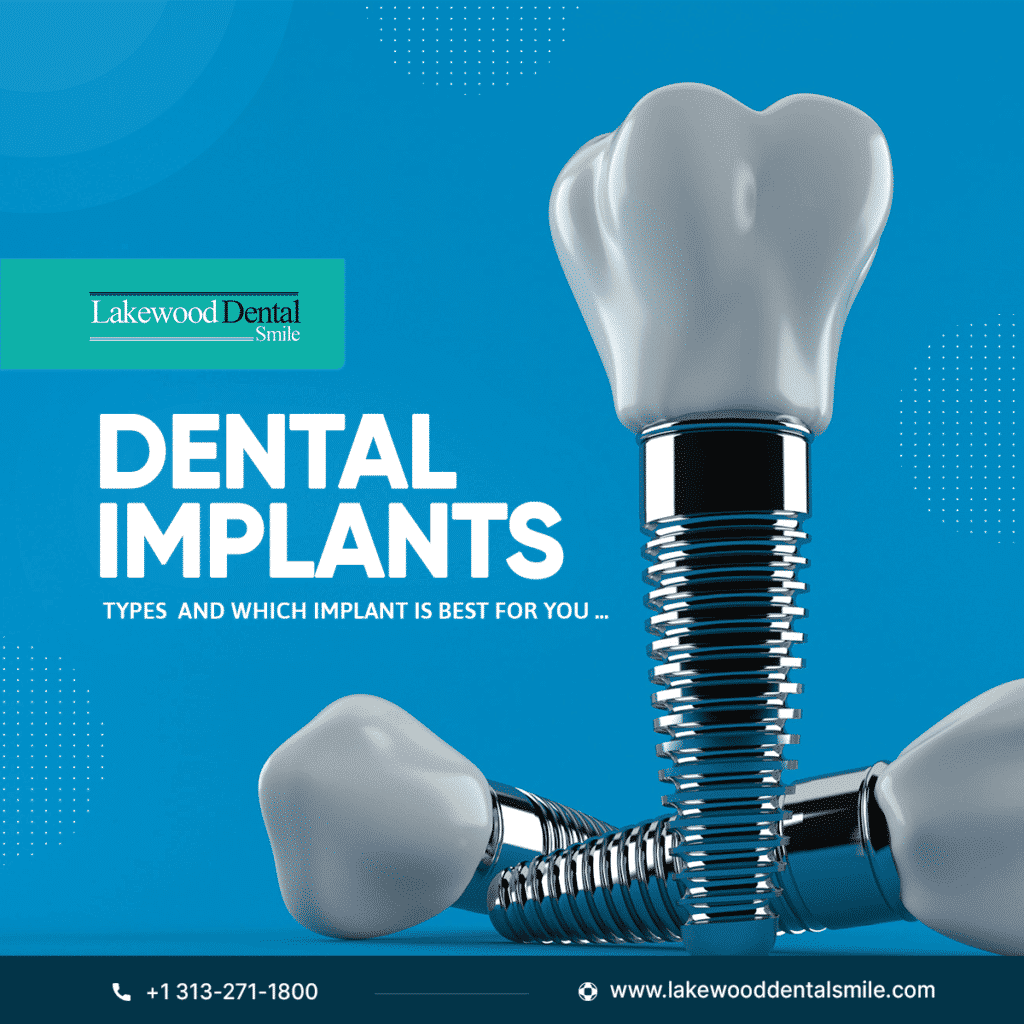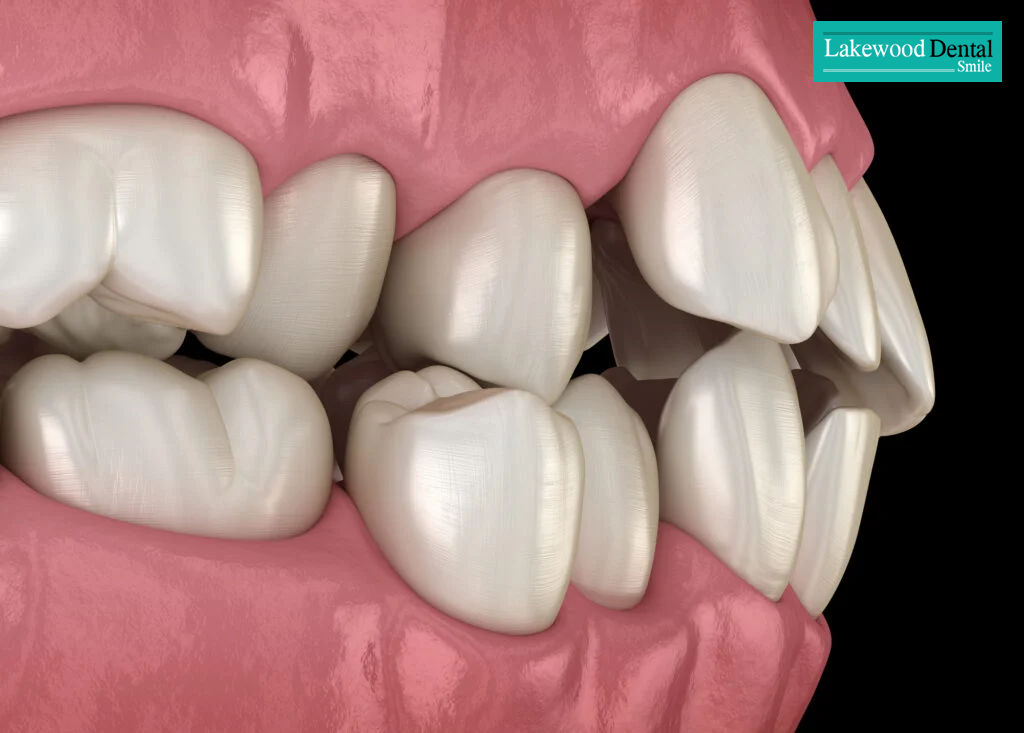Missing teeth can affect both your appearance and oral health. Types of dental implants provide a long-lasting solution, restoring function, confidence, and aesthetics. Choosing the right implant depends on your jaw health, the number of missing teeth, and your lifestyle. In this guide, we explore all common types of dental implants, their procedures, benefits, and aftercare tips.

Single-Stage vs. Two-Stage Procedures
Dental implants can be placed through a single-stage or two-stage procedure:
- Single-stage procedure: The implant root and crown are placed together in one session. This reduces appointments and allows faster recovery.
- Two-stage procedure: First, the implant root is placed into the jawbone and left for 4–6 weeks to heal. During this time, the gum tissue integrates with the implant, creating a strong foundation. After healing, the crown is attached for a natural look and function.
Both methods are effective, and your dentist will recommend the best approach based on your jaw health and treatment goals.
Main Types of Dental Implants
Here are the most common types of dental implants:
1. Single-Tooth Implant
A single-tooth implant replaces a broken or missing tooth. The implant root is anchored into the jawbone, and a crown is affixed on top. This restores chewing ability, prevents bone loss, and preserves the natural shape of your smile.
2. Multiple Tooth Implants
For patients missing several teeth, multiple implants can be placed either individually or connected with a bridge. This ensures stability, distributes chewing pressure evenly, and protects surrounding teeth from shifting.
3. Fixed vs. Removable Implants
- Fixed implants: Permanently attached, similar to natural teeth.
- Removable implants: Crowns or dentures can be detached for cleaning or replacement, prolonging the life of the implant.
4. Over-Denture Implants
Overdentures use two or more implants to support a removable denture, improving stability and protecting jawbone integrity. They are ideal for patients who have lost most of their teeth but want a comfortable, secure fit.
5. Temporary Bridgework Implants
Temporary implants support dentures during the healing phase. Once permanent implants are ready, temporary ones are removed, ensuring proper alignment and bite comfort.
6. Mini Implants
Mini implants are smaller in diameter and often used when jawbone density is limited. They offer a less invasive procedure and faster recovery, but may not be suitable for larger teeth.
7. Zygomatic Implants
For patients with severe bone loss, zygomatic implants anchor into the cheekbone instead of the jawbone. They provide strong support for full-arch dentures when traditional implants are not feasible.
Benefits of Dental Implants
- Restore natural chewing and speaking ability
- Maintain jawbone health and prevent bone loss
- Long-lasting and durable with proper care
- Improve confidence and smile aesthetics
- Require minimal maintenance compared to bridges or dentures
Patient Scenario Example
John, a 55-year-old engineer, lost two molars due to decay. His dentist recommended multiple tooth implants with a two-stage procedure. After six weeks, the crowns were attached. John regained full chewing ability, no longer felt self-conscious when smiling, and experienced improved digestion due to better chewing efficiency.
Aftercare & Maintenance Tips
Proper care extends the life of implants:
- Brush and floss daily, just like natural teeth
- Schedule regular dental checkups every 6 months
- Avoid excessive force, grinding, or chewing hard objects
- Maintain a balanced diet to support oral and bone health
With these practices, implants can last decades, providing a permanent solution to missing teeth.
Conclusion
Understanding the types of dental implants helps you make informed decisions about your oral health. Whether you need a single-tooth implant, multiple implants, or specialized solutions like overdentures or zygomatic implants, the right choice can restore function, confidence, and appearance. For expert guidance and high-quality care, trust Lakewood Dental Smile — your partner in achieving a healthy, beautiful smile.



